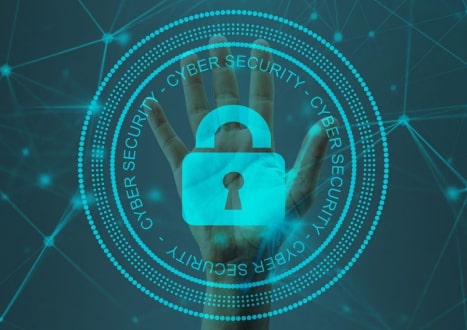- Home
- Video Courses
- Certifications
- 156-915.80: CCSE Update R80 Dumps


156-915.80: CCSE Update R80 Certification Video Training Course
156-915.80: CCSE Update R80 Certification Video Training Course includes 11 Lectures which proven in-depth knowledge on all key concepts of the exam. Pass your exam easily and learn everything you need with our 156-915.80: CCSE Update R80 Certification Training Video Course.
Curriculum for Checkpoint 156-915.80 Certification Video Training Course



156-915.80: CCSE Update R80 Certification Video Training Course Info:
The Complete Course from ExamCollection industry leading experts to help you prepare and provides the full 360 solution for self prep including 156-915.80: CCSE Update R80 Certification Video Training Course, Practice Test Questions and Answers, Study Guide & Exam Dumps.
156-915.80 Check Point CCSE R80 Upgrade Certification Course
Introduction to the Check Point 156-915.80 CCSE R80 Upgrade Exam
The Check Point 156-915.80 Certified Security Expert R80 Upgrade Exam is specifically designed for professionals who have previously earned a CCSE certification on earlier versions of Check Point technologies and are now required to demonstrate their proficiency with the R80 release. Unlike the full CCSE 156-315.80 certification exam, this exam acts as a bridge, allowing already certified professionals to upgrade their credentials without having to take the full path again. The exam validates the ability to configure advanced security policies, implement high availability, manage security operations at scale, and troubleshoot complex issues within enterprise security environments that use Check Point products.
Purpose of the Training Course
The training course for the Check Point 156-915.80 CCSE R80 Upgrade Exam is built to guide learners through both the theoretical and practical aspects of the R80 platform. Its purpose is not only to help learners pass the exam but also to equip them with a strong professional command over modern Check Point tools. Since many organizations around the world rely heavily on Check Point security infrastructure to defend against cyberattacks, there is a constant demand for experts who can confidently manage and optimize these solutions. The course overview lays out a comprehensive journey, beginning with an introduction to the R80 management environment and moving toward advanced features such as identity awareness, intrusion prevention, and secure connectivity.
The Role of the CCSE Certification in the Industry
The Check Point Certified Security Expert certification is a widely recognized benchmark in the cybersecurity industry. Professionals who hold this certification are considered capable of handling advanced-level network security solutions and can oversee the deployment of multi-layered protection strategies within enterprise environments. The R80 upgrade further reflects the professional’s ability to stay current with evolving technologies. Employers value individuals with this credential because it assures them that the professional is trained not just in legacy concepts but in the most up-to-date methodologies available in the Check Point ecosystem. This course overview underscores the strategic role of CCSE-certified experts in safeguarding organizations against advanced cyber threats.
Importance of the Upgrade Exam
Many professionals already certified with CCSE on earlier versions such as R77 or similar releases need an efficient pathway to validate their knowledge in the newer R80 environment. The 156-915.80 upgrade exam ensures that professionals do not repeat material they have already mastered but instead focus on new features and enhancements. These include the consolidated management architecture, advanced security policy management, and unified threat prevention techniques. The training course makes this transition seamless by focusing directly on the areas tested in the upgrade exam, ensuring that learners save time while still mastering the skills required to operate effectively in the R80 platform.
Course Goals and Learning Outcomes
This training course is designed with specific goals that align directly with the requirements of the 156-915.80 exam. By the end of the course, learners should be able to configure advanced security policies, understand the inner workings of Check Point’s architecture, manage multiple security gateways, deploy virtualized security solutions, and troubleshoot problems using a structured methodology. In addition, learners will develop practical skills in performing upgrades and migrations from older Check Point versions to R80, which is a crucial responsibility for professionals working in large enterprises.
Structure of the Training Course
The training course is divided into four major parts, each containing approximately three thousand words of structured content. Part one covers the course overview and modules. Part two explains in detail the requirements of the course. Part three focuses on course descriptions and provides clarity on who this course is intended for. Part four consolidates all learning with practice scenarios, revision strategies, and exam-oriented preparation techniques. Each section is enriched with explanations that flow smoothly without the use of numbered lists or bullet points, allowing learners to absorb the content as a narrative learning experience.
Core Areas of Focus in the Modules
The modules of this course focus on a wide range of subjects relevant to the Check Point 156-915.80 exam. Each module gradually builds upon the previous one, ensuring that learners acquire knowledge step by step. Key areas include security management architecture, clustering and high availability, policy optimization, network address translation, intrusion prevention, and identity awareness. Special emphasis is placed on advanced troubleshooting techniques and performance tuning, since these are critical skills expected from a certified expert.
Detailed Breakdown of Training Modules
Module One Understanding Check Point Security Architecture R80
This module introduces the learner to the R80 architecture and explains how it differs from earlier versions. Topics such as the unified management console, role-based access control, and consolidated logging are explained in depth. The learner will understand how Check Point integrates security functions within a single platform, simplifying administration while expanding capabilities.
Module Two Security Management and Policy Configuration
The second module covers advanced policy management within the R80 environment. The learner explores how to create and configure security policies, apply rule layers, and manage security zones effectively. Advanced policy optimization techniques are introduced to ensure that security rules are both efficient and scalable across enterprise networks.
Module Three Network Address Translation and Secure Connectivity
This module focuses on the configuration of NAT and VPN connectivity. Professionals are taught how to implement static and dynamic NAT, hide NAT, and troubleshoot translation problems. The module then moves into the configuration of site-to-site and remote access VPNs, highlighting the changes and improvements introduced in R80.
Module Four High Availability and Clustering
High availability is a critical component of enterprise security. This module introduces clustering concepts, cluster synchronization, failover testing, and troubleshooting of clustered gateways. Learners will explore Check Point’s ClusterXL technology and learn how to ensure uninterrupted connectivity and protection even during system outages or hardware failures.
Module Five Intrusion Prevention and Threat Management
Here the focus shifts to Check Point’s intrusion prevention system and the unified threat management capabilities of the R80 release. Learners gain hands-on experience in detecting, preventing, and responding to modern threats using Check Point’s advanced threat prevention blades. The module emphasizes signature-based detection, anomaly-based detection, and the integration of threat intelligence.
Module Six Identity Awareness and Access Control
Identity awareness is a powerful feature that allows administrators to create policies based on user and group identity rather than just IP addresses. This module covers identity agents, captive portals, and directory integration. Learners understand how to configure access control policies that adapt dynamically to users, devices, and environments.
Module Seven Performance Optimization and Troubleshooting
This module prepares learners to address the most demanding aspects of enterprise operations. It covers advanced troubleshooting commands, diagnostic tools, and methods to identify performance bottlenecks. Learners also study how to tune system parameters, optimize resources, and apply updates effectively to maintain system stability.
Module Eight Migration and Upgrade to R80
Since the 156-915.80 exam is an upgrade-focused exam, this module covers migration strategies from older Check Point versions to R80. It discusses migration tools, backup and restore techniques, and best practices for ensuring a smooth upgrade without service disruptions.
Integration of Practical Labs
Each module in the training course integrates lab-based exercises where learners can apply the theory in a simulated environment. Practical labs are designed to mirror real-world enterprise challenges, allowing learners to experiment with different configurations, test advanced policies, and troubleshoot complex problems. These labs form a bridge between conceptual knowledge and hands-on expertise.
Exam Relevance of Each Module
The course modules are structured with careful attention to the blueprint of the 156-915.80 exam. Every concept explained and every skill practiced is directly mapped to what candidates are likely to encounter in the exam. This alignment ensures that learners not only gain professional knowledge but also maximize their readiness for the certification test.
Continuous Learning Beyond the Exam
While the training course prepares learners to succeed in the Check Point 156-915.80 exam, it also emphasizes the importance of continuous learning. Cybersecurity is a constantly evolving field, and professionals must regularly update their knowledge to remain effective. This course therefore introduces learners to resources and strategies for ongoing professional development, ensuring that they remain valuable contributors to their organizations long after they have passed the exam.
Introduction to Course Requirements
Every professional certification program requires a clear understanding of what learners need in terms of prior knowledge, technical resources, and professional experience. The Check Point 156-915.80 Certified Security Expert R80 Upgrade Exam is not designed for beginners. It assumes that learners already possess a strong foundation in Check Point technologies from earlier versions and that they are actively working or have previously worked in network and security administration. The requirements of this course serve as guidelines to ensure that participants are well-prepared to engage with the material and succeed in both the training and the exam.
Prior Certification Prerequisites
The first and most important requirement for candidates pursuing the 156-915.80 upgrade exam is holding a valid Check Point Certified Security Expert credential on an earlier version such as R77 or similar. This prerequisite ensures that candidates already understand fundamental and intermediate-level topics like firewall policies, network address translation, VPNs, and intrusion prevention. Since the upgrade exam does not cover basics, learners are expected to be comfortable with these core competencies before beginning this training program.
Technical Knowledge Requirements
In addition to prior certification, learners need to have a strong working knowledge of networking fundamentals. This includes TCP/IP concepts, routing, switching, and common network services such as DNS, DHCP, and HTTP. A familiarity with security concepts such as encryption, authentication, and intrusion detection is equally critical. Since the R80 upgrade introduces advanced security management capabilities, learners must be able to relate these features to broader security principles. Understanding operating system basics, especially Linux-based environments, is also advantageous because many of Check Point’s systems operate on customized Linux platforms.
Professional Experience Expectations
The course and the exam are designed with the assumption that learners have real-world professional experience in network security. While classroom knowledge can help, the upgrade exam validates skills that are often honed in active enterprise environments. Experience in managing firewalls, configuring VPNs, monitoring security events, and troubleshooting connectivity issues plays a vital role in ensuring success. Professionals who have worked with Check Point Security Management Servers, Security Gateways, and SmartConsole in production environments will find the transition to R80 concepts smoother.
Hardware and Software Requirements for Training
Learners must have access to specific hardware and software resources to complete the training program effectively. Since this course includes practical labs, a dedicated training environment is highly recommended. At minimum, learners should have access to a workstation with sufficient processing power and memory to run virtual machines. Virtualization software such as VMware Workstation or Oracle VirtualBox will be necessary to simulate Check Point gateways and management servers. Check Point offers evaluation licenses and virtual machine images that learners can deploy in their training lab. Ensuring stable internet connectivity is also a requirement for accessing online resources, downloading updates, and performing cloud-integrated labs.
Lab Environment Requirements
A functioning lab environment is central to mastering the CCSE upgrade content. The lab should ideally consist of at least two virtual machines acting as Check Point Security Gateways and one as a Security Management Server. This setup allows learners to simulate clustering, VPN connectivity, and policy management. Additional machines can be configured as client endpoints or servers to test access control and intrusion prevention. Learners are required to practice migration and upgrade procedures, which means having access to snapshots or backup images of older versions is also advantageous.
Software Tools and Utilities for the Course
Beyond Check Point software itself, learners may also need auxiliary tools such as Wireshark for packet analysis, secure shell clients for remote administration, and system monitoring tools to observe resource usage. These utilities support troubleshooting activities, which are a major component of the CCSE upgrade training. Learners should be familiar with using command-line tools to diagnose network and security issues, as many exam questions and lab exercises require command-line proficiency in addition to GUI-based configuration.
Time Commitment and Learning Discipline
The 156-915.80 upgrade exam is not merely a test of memory; it is a test of practical expertise. To achieve mastery, learners should be prepared to commit a significant amount of time to both theoretical study and practical labs. A structured study plan that allocates consistent daily or weekly time slots for training is essential. Since the course is designed in four major parts, learners are encouraged to progress sequentially, dedicating time to thoroughly understanding each concept before moving forward. The discipline to follow the course structure closely and the patience to practice repeatedly in labs are crucial requirements.
Language Proficiency Requirements
The exam is conducted in English, and the course materials are also primarily available in English. Therefore, learners must have a comfortable level of English language proficiency. Technical English terms are frequently used, and the ability to read, comprehend, and interpret complex technical instructions is essential. This requirement ensures that learners can not only follow the training program but also understand official documentation, exam questions, and troubleshooting guides.
Mental Preparedness for the Upgrade Path
Upgrading to a new version of a professional certification can be mentally demanding, particularly when technologies have undergone significant changes. Learners are required to approach this course with an open mindset that embraces change. They should be prepared to unlearn certain outdated practices from earlier versions and replace them with more efficient R80 methods. Mental flexibility and readiness to adopt new workflows are key requirements for success in this training course.
Institutional and Organizational Support
In many cases, learners undertake this certification as part of their organizational role. Having institutional support in terms of allocated time, funding for exam vouchers, and access to resources can be an important requirement. Organizations benefit directly from having CCSE-certified professionals on their teams, and therefore they often provide the infrastructure necessary for training. Learners who have organizational backing may find the training process smoother, although independent learners can also succeed by ensuring they meet all resource requirements on their own.
Commitment to Continuous Practice
One of the most significant requirements of this course is the learner’s commitment to continuous practice. The R80 upgrade introduces changes in management interfaces, policy structures, and operational processes. Memorizing steps is insufficient; learners must practice until tasks become second nature. The exam will test both theoretical knowledge and applied problem-solving skills, and therefore practice in real or simulated environments is non-negotiable.
Financial Requirements
While knowledge and practice are the most important aspects, financial considerations are also part of the course requirements. Learners must plan for the cost of training resources, virtualization hardware, exam vouchers, and possibly additional reference books. These costs should be factored in early to prevent interruptions in the training journey. Many professionals also invest in extended lab resources such as cloud-hosted environments to practice scenarios that require higher performance than a personal computer may offer.
Importance of Meeting All Requirements
The requirements outlined here are not arbitrary. They are carefully aligned with the nature of the 156-915.80 upgrade exam and the professional standards expected of a CCSE-certified expert. Meeting these requirements ensures that learners can fully benefit from the course content, engage meaningfully with lab exercises, and ultimately succeed in passing the exam. Skipping requirements or underestimating their importance can result in knowledge gaps that may hinder professional performance even after certification.
Preparing for Success in the Exam Journey
Meeting the requirements of this course is the first step toward a successful upgrade. Learners who come prepared with prior knowledge, professional experience, technical resources, and disciplined study habits set themselves up for excellence. As the cybersecurity landscape evolves, organizations demand professionals who can demonstrate not only certification but also real-world competence. By fulfilling the requirements of this training program, learners align themselves with this demand and position themselves as reliable, skilled security experts capable of leading advanced security operations in modern enterprises.
Introduction to the Course Descriptions
The Check Point 156-915.80 Certified Security Expert R80 Upgrade Exam training course is a structured pathway designed for professionals who are ready to advance their expertise within the Check Point security ecosystem. This course description provides a detailed picture of what the training entails, how the content is delivered, and what learners can expect to gain. Unlike entry-level programs that focus on foundational concepts, this upgrade course is specifically crafted to help already certified experts transition smoothly into the R80 environment. The descriptions provided here highlight the depth, scope, and strategic value of the course while also clarifying who is best suited to enroll.
Nature of the Upgrade-Focused Training
The training for the 156-915.80 exam is upgrade-focused, meaning it does not revisit elementary concepts of network security or firewall administration. Instead, it concentrates on the differences between earlier versions and the R80 release. Learners are guided through the new management architecture, enhanced features, and advanced troubleshooting methods introduced in R80. The training places emphasis on practical demonstrations and simulated environments where learners can engage with the new tools directly. By narrowing its focus to upgrade-specific content, the course ensures that learners save time and concentrate on the knowledge that directly impacts their professional progression.
How the Course Aligns with Industry Needs
Modern enterprises face increasingly complex security threats, and Check Point remains one of the most trusted solutions in this landscape. The R80 release represents a significant advancement in security management by unifying threat prevention, logging, and monitoring into a single console. The training course mirrors this industry reality by preparing learners to handle real-world enterprise security requirements. Organizations need professionals who can not only configure and maintain Check Point solutions but also optimize them for performance and resilience. This course description underlines how the program meets those needs by emphasizing applied knowledge rather than abstract concepts.
Structure of Learning Delivery
The training course is structured into comprehensive modules that progressively develop advanced-level skills. Each module begins with a conceptual explanation, moves into practical demonstrations, and concludes with lab-based reinforcement. The learning experience is narrative-driven, allowing learners to engage with complex technical topics in a structured, sequential way. Since this training is designed to support exam readiness, each module also aligns with the exam blueprint to ensure learners are consistently exposed to test-relevant material.
Depth of Technical Content
The course goes beyond surface-level knowledge by exploring the internal workings of the Check Point R80 architecture. Learners gain detailed insights into clustering behavior, advanced intrusion prevention strategies, dynamic identity-based policies, and secure connectivity management. They also explore migration and upgrade strategies in depth, understanding the tools and processes required to move from older versions to R80 with minimal disruption. Troubleshooting scenarios are emphasized, teaching learners how to analyze logs, use diagnostic commands, and resolve complex configuration issues. This level of detail makes the course highly valuable not just for passing the exam but for professional application in the workplace.
Role of Practical Application
Practical application is at the heart of this training course. While theoretical understanding is necessary, the exam and real-world performance rely heavily on the ability to apply knowledge to practical scenarios. The course integrates hands-on labs that mirror enterprise challenges. Learners configure security policies, establish VPNs, deploy clustering solutions, and resolve real-time problems within a simulated environment. This practical orientation ensures that learners leave the course with confidence in their ability to translate knowledge into professional competence.
Who This Course Is For
The Check Point 156-915.80 training program is tailored for a very specific group of professionals. It is not a generalist course but one designed for individuals who already hold the CCSE credential on earlier versions and are seeking to upgrade to R80. This means the course is ideal for experienced network security engineers, system administrators, and security consultants who are already familiar with Check Point technologies. It is also intended for professionals working in organizations that are migrating their infrastructure to R80 and who need to ensure their expertise is current.
Target Audience in Professional Roles
The primary audience for this course includes network security administrators who manage daily operations of Check Point firewalls and security management systems. It is equally suited for security engineers responsible for designing and implementing Check Point solutions across enterprise networks. Consultants who advise organizations on security strategies will also find this course essential, as it equips them with the knowledge to recommend and deploy R80-based solutions. In addition, IT managers and senior administrators who supervise teams of security professionals can benefit by ensuring they understand the latest capabilities of the platform their teams rely on.
Relevance to Enterprise Environments
Enterprises across industries such as finance, healthcare, education, and government are rapidly adopting the R80 platform because of its consolidated security management features. This course is relevant to professionals in these environments who must ensure that their security infrastructure is both effective and compliant with modern standards. Professionals tasked with protecting sensitive data, meeting regulatory requirements, and responding to advanced cyber threats will find that the knowledge gained in this training directly translates to improved organizational resilience.
Why Experienced Professionals Benefit Most
Because the training assumes a pre-existing level of certification and expertise, experienced professionals gain the most from enrolling. They can quickly grasp the differences between older versions and R80 and immediately apply this knowledge in their work environments. Their background allows them to focus on mastering advanced topics rather than revisiting fundamentals. This makes the course not only efficient but also highly rewarding, as it builds upon their existing knowledge base and elevates their professional standing.
Academic and Career Advantages
From a career perspective, achieving the CCSE R80 upgrade certification distinguishes professionals in a highly competitive job market. Employers recognize that individuals who hold this credential have demonstrated commitment to continuous learning and mastery of advanced security skills. Academically, the course provides a structured pathway for lifelong learning in cybersecurity. It encourages professionals to view certification not as a one-time achievement but as part of an ongoing journey of skill development. This forward-looking perspective enhances both employability and career progression.
Course Suitability for Independent and Sponsored Learners
The course is suitable for both independent learners who are self-funding their certification journey and for learners sponsored by their organizations. Independent learners benefit from the flexibility of progressing through the course at their own pace, while sponsored learners may have the advantage of additional institutional resources. The course descriptions emphasize that regardless of the learning context, the program provides all the necessary structure and content to ensure exam success and professional growth.
Expectations of Learners Enrolling in the Course
Learners enrolling in this course are expected to bring not only technical knowledge but also professional discipline. Since the course is intensive and upgrade-specific, learners must commit to completing lab exercises, engaging with theoretical material, and practicing consistently. The training assumes that learners are motivated professionals who understand the value of certification in their careers. Meeting these expectations ensures that learners can extract maximum value from the program.
The Course as a Bridge to Higher Expertise
The Check Point 156-915.80 training course should be viewed as a bridge. It connects the knowledge professionals already possess from earlier certifications with the advanced capabilities of the R80 platform. In doing so, it strengthens their position as experts and prepares them for even more advanced opportunities in cybersecurity. The course does not just end with the exam; it sets the foundation for continued professional development, including pursuing future Check Point specializations or broader security leadership roles.
Long-Term Value of the Training Program
While the immediate goal of the course is to prepare learners for the upgrade exam, its long-term value lies in the professional confidence it builds. Learners gain not only a certification but also an enhanced ability to handle complex enterprise security challenges. The descriptions make it clear that this training is an investment in future career resilience, positioning learners as adaptable professionals in a fast-changing industry.
Student Feedback
Similar Checkpoint Video Courses






Only Registered Members Can Download VCE Files or View Training Courses
Please fill out your email address below in order to Download VCE files or view Training Courses. Registration is Free and Easy - you simply need to provide an email address.
- Trusted By 1.2M IT Certification Candidates Every Month
- VCE Files Simulate Real Exam Environment
- Instant Download After Registration.
Log into your ExamCollection Account
Please Log In to download VCE file or view Training Course
Only registered Examcollection.com members can download vce files or view training courses.




